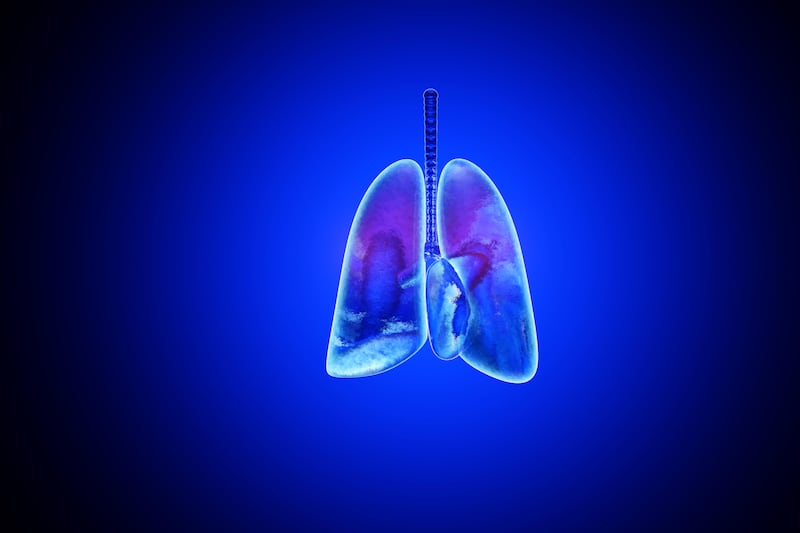More people with lung cancer symptoms in the UK should be able to self-refer for tests rather than wait for their GP to request them, experts have suggested.
It should be “easier” for those with symptoms of the disease to get chest x-rays and help speed up diagnosis, according to researchers.
In analysis published in the British Journal of General Practice, academics and medics, along with the charity Roy Castle Lung Cancer Foundation, called for the widespread adoption of services that allow patients to self-refer without a GP consultation.
Experts cited self-request chest x-ray services which have been established in a number of locations, including Leeds and Greater Manchester.
Under the schemes, patients with symptoms such as a persistent cough, tiredness and difficulty breathing can access radiology services directly, with the report of their x-ray sent to their GP.
The authors claim the wider rollout of these services “warrants urgent consideration” given the “present difficulties patients face in accessing primary care”.
The analysis also suggests the number of lung cancer cases picked up from self-referral is similar to those referred by a GP.
Dr Stephen Bradley, lead author of the paper and a practising GP in Leeds, said: “A lung cancer diagnosis can be devastating but spotting it early can make all the difference.
“We’ve made a lot of progress, but there is so much more we need to do to diagnose it as quickly as possible.”
Among the other recommendations made by experts is that data on how many chest x-rays GP practices are requesting each year should be made available to highlight where patients may benefit.
They also suggest messaging around lung cancer symptoms should be designed to reach people who have never smoked, as well as those who have.
Dr Bradley added: “We need to make it easier for people with symptoms to get tests like chest x-ray and ways to raise awareness of the disease, including people who haven’t smoked.
“We hope health services across the UK will seriously consider these recommendations and help us give people who have lung cancer the best chance possible.”
According to the NHS, more than 43,000 people each year are diagnosed with lung cancer in the UK. Smoking is the most common cause, accounting for about 70% of cases.
The disease is more likely to be treated successfully if caught early.
In June 2023, it was announced that a targeted lung cancer screening programme would be rolled out and will be available across England by 2029.
Those eligible for screening are people aged between 55 and 74 who are current or former smokers.
Nick Whitehead, 58, from Newton Aycliffe, visited his GP a number of times with a persistent cough over the course of about 18 months, but was never sent for a chest x-ray.
He was eventually diagnosed with lung cancer two years later when he visited A&E after coughing up blood.
“There were many opportunities for me to be diagnosed earlier,” Mr Whitehead said. “I think I wasn’t sent for tests because I was so fit.
“As a scuba diver, my lung capacity is good, so I wasn’t short of breath, but given that we’re constantly told that a persistent cough is a symptom of lung cancer, it’s odd that I wasn’t sent for an x-ray at the very least.
“Had I had the opportunity to request an x-ray, I would have taken myself off for one. My wife would have made sure of it.”
Paula Chadwick, chief executive of Roy Castle Lung Cancer Foundation, said: “Far too often we hear stories of people like Nick whose lung cancer could have been diagnosed sooner. It is imperative we do everything we can to change this.
“We are making progress, largely through screening with 76% of those caught at stages one and two.
“However, with more than half of lung cancers arising in people who aren’t eligible for screening and only around half of those who are eligible choosing to participate, improving early detection amongst those with symptoms is key to transforming long-term survival.”
A Department of Health and Social Care spokesperson said: “Under this government’s Plan for Change to radically reform the NHS, we will fight cancer on all fronts – through prevention, diagnosis, treatment and research.
“We are committed to transforming diagnostic services, including for lung diseases, so we can catch more cases earlier and treat them faster. We will also deliver 40,000 more elective care appointments every week and invest an extra £1.5 billion on new surgical hubs and AI scanners.”








